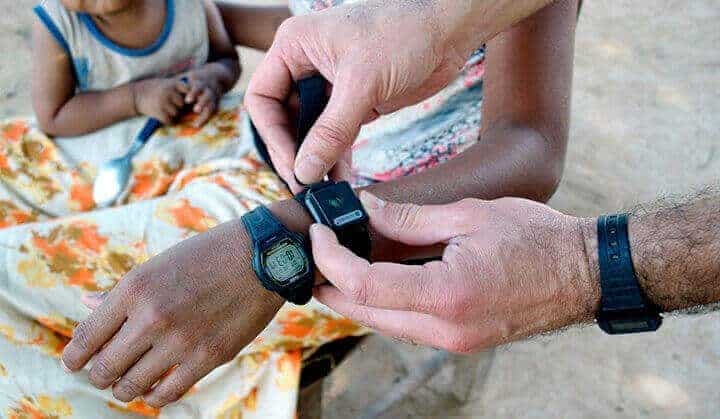Easy access to electricity and artificial light triggers a measurable reduction in human sleep, according to a new study of hunter-gatherer communities in Argentina.
Researchers studied two groups of Toba/Qom hunter-gatherers indigenous to the Chaco region of northeastern Argentina. The communities share the same ethnic and socioeconomic background, but have a key difference: One community has free access to electricity and the other relies exclusively on natural light.
Researchers from Yale, Harvard, the University of Washington, and the University of Quilmes and Conicet in Argentina conducted a study to see if the availability of electricity affected sleep patterns. They fitted participants in each community with wrist devices that logged data about sleep-wake cycles. Researchers gathered data during one week in the summer and one week in the winter.
What the researchers found was a shift in both the timing and duration of sleep. In the summer, participants with access to electricity slept about 40 minutes less than their counterparts who depended on natural light. Electricity users went to sleep later, but arose at the same time as natural light users. In the winter, participants with electricity slept about an hour less than participants without electricity.
It is the first study to document the relationship between access to artificial light and the amount of sleep humans get each night. The research appears in the Journal of Biological Rhythms.
“What this suggests is that early humans may have had longer periods of rest than people in most industrialized societies experience today,” said Yale University biological anthropologist Eduardo Fernandez-Duque, a co-author of the paper. “I think it is important to continue communicating the idea that in our industrial societies we may not be getting all of the sleep we should.”
Fernandez-Duque and co-author Claudia Valeggia, also a biological anthropologist at Yale, have conducted fieldwork in the Argentinian Chaco for nearly 20 years. They are married.
The lead author of the study is Horacio de la Iglesia of the University of Washington. “In a way, this study presents a proxy of what happened to humanity as we moved from hunting and gathering to agriculture and eventually to our industrialized society,” de la Iglesia said. “All the effects we found are probably an underestimation of what we would see in highly industrialized societies where our access to electricity has tremendously disrupted our sleep.”
Other authors of the paper were Diego Golombek of the University of Quilmes, Norberto Lanza of CONICET, and Jeanne Duffy and Charles Czeisler of Harvard. Support for the study came from the Leakey Foundation, the National Science Foundation, and the National Institutes of Health.


